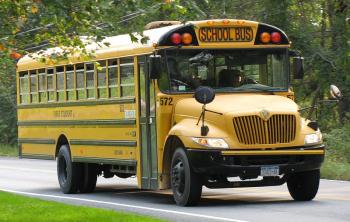
Many school districts are opting to stay closed for the upcoming fall semester, but some churches are looking to open their doors to host remote learning students.
Churches in Winston-Salem, North Carolina, are hoping they can host small, socially distanced students during typical school hours. Coronavirus cases in North Carolina continue to spike, and schools will be closed for in-person learning for at least the first nine weeks.
St. Timothy’s Episcopal Church is one of the churches aiming to open, and if the bishop approves the idea as many as 30 students could gather daily across their campus. Health protocols would be enforced by church volunteers. They would also help in tutoring the students, and lead prayers at the beginning and end of each day.
“We know in our faith that it’s not good for us to be alone,” said Steven Rice, rector at St. Timothy’s, citing a biblical passage in Genesis. “Some socialization among people of their own age will be a great benefit (to the students). And if both parents have to work, at least half the day is better than nothing.”
Robbinsville United Methodist Church, in rural Graham County, N.C., has already partnered with their school district to help. When the pandemic first hit, Robbinsville UMC, along with 15 other churches, became sites where families could come pick up breakfast and school lunches to go.
Now, Robbinsville UMC is preparing to offer study hall access to students. Graham County will only be allowing students to come into school on select days, so UMC is offering parents the ability to drop their students off at church to do remote learning from their fellowship hall. Adults will supervise the students, and churches have been given hotspot devices from the county. To respect social distancing, no more than 10 children will be allowed at a time.
“On their day that’s virtual, if they don’t have Wi-Fi at home, they can come here,” Pastor Eric Reece of UMC said. “They can use their (district-issued) Chromebooks to go online and stay caught up on their work.”
Congregations across the United States are looking for ways to aid students during this transition, and youth ministry experts are seeing promising opportunities.
“This is a way of reimagining children’s and youth ministry during a pandemic in a really amazing way that serves families and meets concrete needs,” said Angela Gorrell, assistant professor of practical theology at Baylor University and author of Always On: Practicing Faith in a New Media Landscape. “You can connect with kids in your neighborhood who might not otherwise be a part of your children’s and youth ministry.”
Setting up churches as schools could be a way to reduce stress in children during this time. It would also help tremendously with parents who can’t easily work from home or have several children to supervise.


